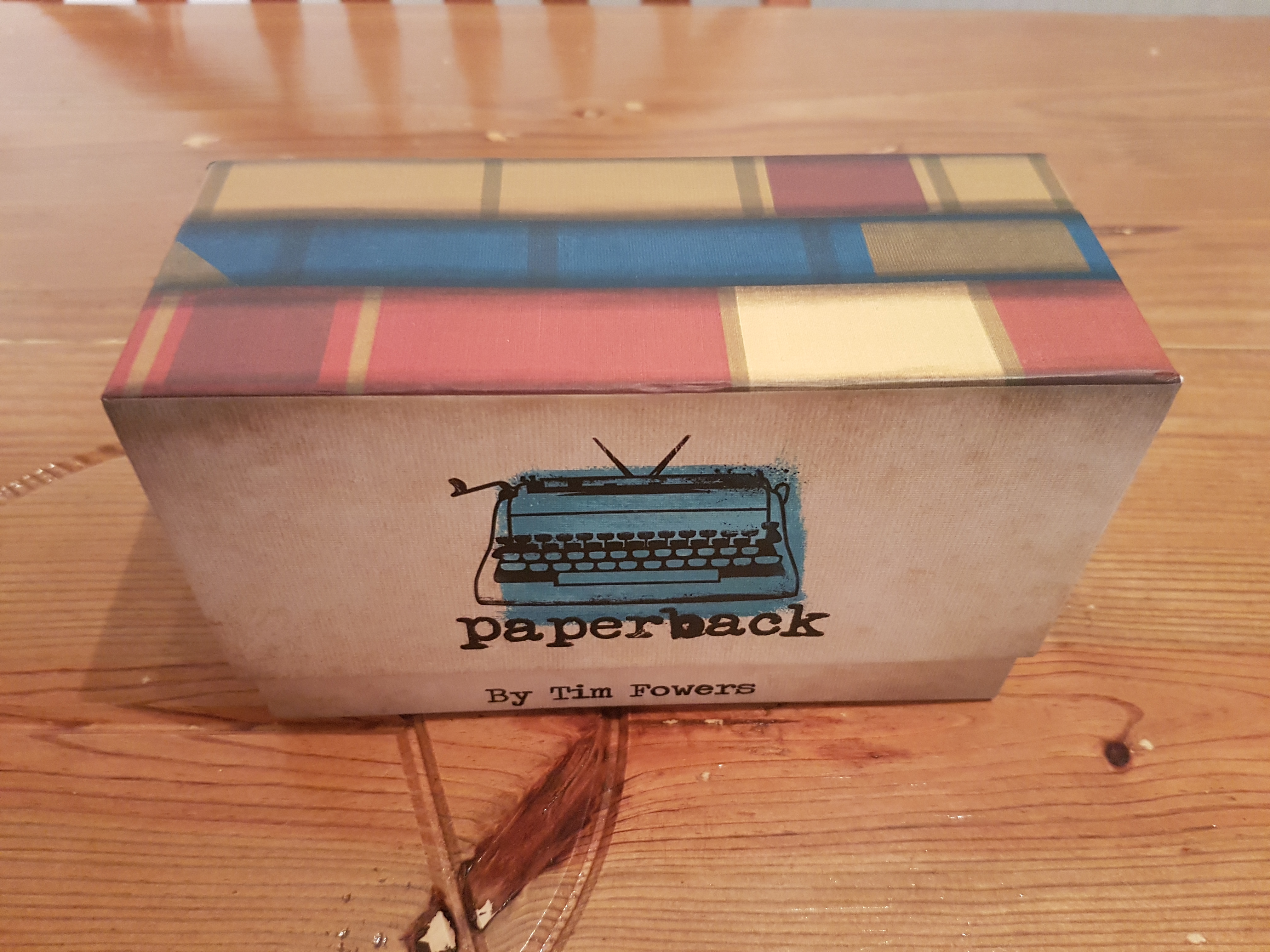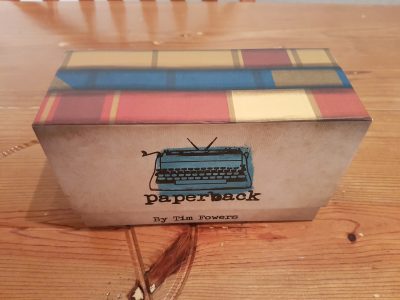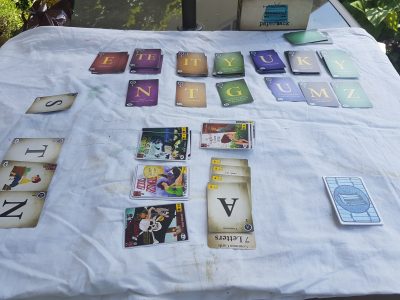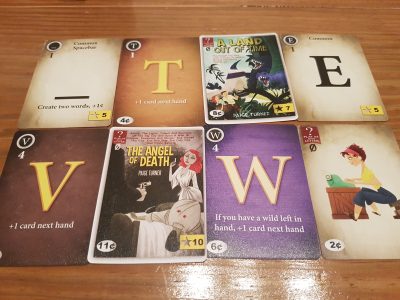Paperback sees a group of budding writers trying to complete brilliant works of fiction to earn money and fame. The card game is a unique combination of deck building mechanics and word creation, from the talented creator Tim Fowers. Coming with over 200 cards there is plenty in the small box for players to get their hands on to become the best novelist. Following in the footsteps of the game’s Paige Turner, whom clearly put pun to paper.
Set up is extremely straight forward. Firstly, players short the letters into value piles, each with a distinct colour. These piles are individually shuffled and are placed face up in the middle of the table. The top card of all piles, apart from the 2-cent pile is taken and placed below the pile so there are two rows of letters, creating The Offer. This is the marketplace where players will purchase additional letters from on their turn. Depending on the number of player a range of different costing fame, or wild, cards are placed next to The Offer. Finally, to complete the cards on the table the Common Letter cards are shuffled and 4 are taken and placed on the Common Letters card.
Starting the game each player is given the same 10 identical cards. Five of these are wild cards that can be used as any letter and give 1 fame at the end of the game, Paperback’s victory point system. One downside to these fame cards is they never earn the player currency to spend when played. The other five are starting letters which score only 1 cent when used to form a word. On a standard turn players draw the top five cards from their deck. Later on in the game this can be affected by abilities to be above 5, though 5 is the norm.
Players then try to create a word utilizing the 5 cards and the common letter on show. When playing a word, each card has a number on it for the cents earnt for using it, remember fame cards score nothing but do help to create a word. Totalling these values up, players use the cents earnt that round to make a purchase from the cards on The Offer. Letters and fame cards are all available for purchase if you can afford them and when brought are placed onto the player’s personal discard pile.
After choosing from The Offer any unspent cents are lost and all five cards that the player had in their hand, whether they were used or not, are discarded into their discard pile. A new set of 5 cards is drawn from their deck ready for the next turn. If at any point the deck runs out the discard pile is shuffled and flipped over to create a new deck to draw from, including the new cards they have purchased. This goes until any of the game end conditions, such as two fame card piles being depleted, are met. The winner is simply the writer with the most fame at the end of the game.
The fame cards being used as any letter helps but what truly helps the game flow and keep momentum is the common letter cards. The first player to make a word of 7 letters takes the common letter, scoring points and unveiling a new letter. To claim the subsequent common letter takes a word of length 8 letters, increasing by 1 each time. If all common letters are claimed the game ends. A game’s dynamic changes completely when one of these letters are claimed. Suddenly a letter you naturally fell back to, to help create a word, is gone. Especially, if it is your turn next this is a shock. You may have been planning on laying a killer, point scoring word down utilizing the common letter. Now without it you must start from scratch and often are left staring blankly at your hand of cards.
This does highlight my only major issue with Paperback that can draw from the experience. The game is all about scoring large points to purchase more letters and additional fame cards. Thus, players feel pressured into finding the optimal word on each and every turn. “Just” placing a quick word feels like a wasted opportunity. Yet, waiting around staring at your available letters slows the game down, increasing the downtime of other players between turns. You have the ability to think about future words but if someone is struggling to make a word feeling pressured isn’t going to help. This will depend on the player, some relishing under pressure and others losing enjoyment due to the same pressure element.




